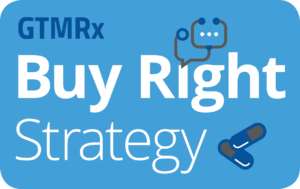 Cheryl Larson
Cheryl Larson
President and Chief Executive Officer, Midwest Business Group on Health
GTMRx Employer Toolkit Taskforce Member
As employers, we want to build a better health care system. We want to improve the cost, quality and safety of health care. At the Midwest Business Group on Health (MBGH) and other employer collaboratives, we’re using our collective voice to serve as a catalyst for change.
Employers and employees suffer because some stakeholders—especially some insurers and pharmacy benefit managers (PBMs)—don’t want to change. That’s why we need to drive innovation and transformation. As employers, we are the real payers. We can change the way care is delivered and paid for. We can reduce misuse and waste. But we must be clear in our demands. I’ve identified three:
- Demand accountability from vendors: Providers, plans, PBMs and other suppliers answer to you. Outcomes-based contracting can help you achieve this. At the very least demand expected-performance guarantees. To hold vendors accountable, you need metrics that matter; those aren’t always the metrics the vendors want to share. For instance, the number of people who participated in a program is meaningless; it’s a metric that provides no value to the patient or to the employee.
- Demand price transparency: To remove waste, we need transparency about the actual costs. Our members are providing such transparency by focusing on intermediaries, such as PBMs, that make health care more expensive. What happened to doing the right thing? Employers need to recognize that these intermediaries are adding to the already excessive cost of health care.
- Demand value: We need to stop spending money on low value medications and those that don’t work for individuals; this will preserve resources to pay for high-value meds. We want medication safety, efficacy and clinical appropriateness to be the drivers of decision-making, not rebates or habitual prescribing practices. Comprehensive medication management provides one path forward.
All about waste
So much of this comes down to eliminating waste. Employers need to really hunker down—and many already have—to focus on waste, misuse and inappropriate or low-value care. We need to get back to the basics. If we didn’t know it before, COVID-19 has put the spotlight on so many of the health care industry’s failings. But the pandemic also provides an opportunity to look at the things that are working and get rid of those that aren’t.
This is especially true in terms of medications. By spending less money on low-value medications and those that don’t work, we can afford to pay for high-value care.
It’s up to employers to make this happen. We need to be transformative and disruptive, and we can do that through the pharmacy benefit. Did you know PBMs can increase employer costs by 20% to 30% or more?
Employers must drive innovation, or it will be driven for us. And yes, there is so much employer-driven innovation out there, but many employers don’t realize they have the power to create change.
And many don’t realize they have an obligation to.
A duty
Self-funded employers are the fiduciary for their plan beneficiaries—employees and family members. It is their duty to know how employee premiums are being used to fund care. They are responsible for offering the best benefits at the best price. Paying for waste, misuse and low-value care and treatment violates this duty. According to the U.S. Department of Labor, self-funded employers must, among other things, act solely in the interests of plan participants and their beneficiaries and pay only reasonable plan expenses.
But even without the legal obligation, we know employers are willing to invest in high quality health care benefits to maintain a healthy, productive workforce while controlling costs.
COVID-19 presents an opportunity for us to create a new normal and to rethink how we deliver health care. We want to fix what isn’t working and enhance what is—which benefits employers and their employees and dependents.
We all stand to benefit, but we all must speak out. Join us.
The Midwest Business Group on Health (MBGH) has been among the most active employer coalitions driving policies and initiatives to take a more comprehensive approach to medication management. It represents 135 mid, large & jumbo self-insured public & private companies that, together, are responsible for 4 million lives.

